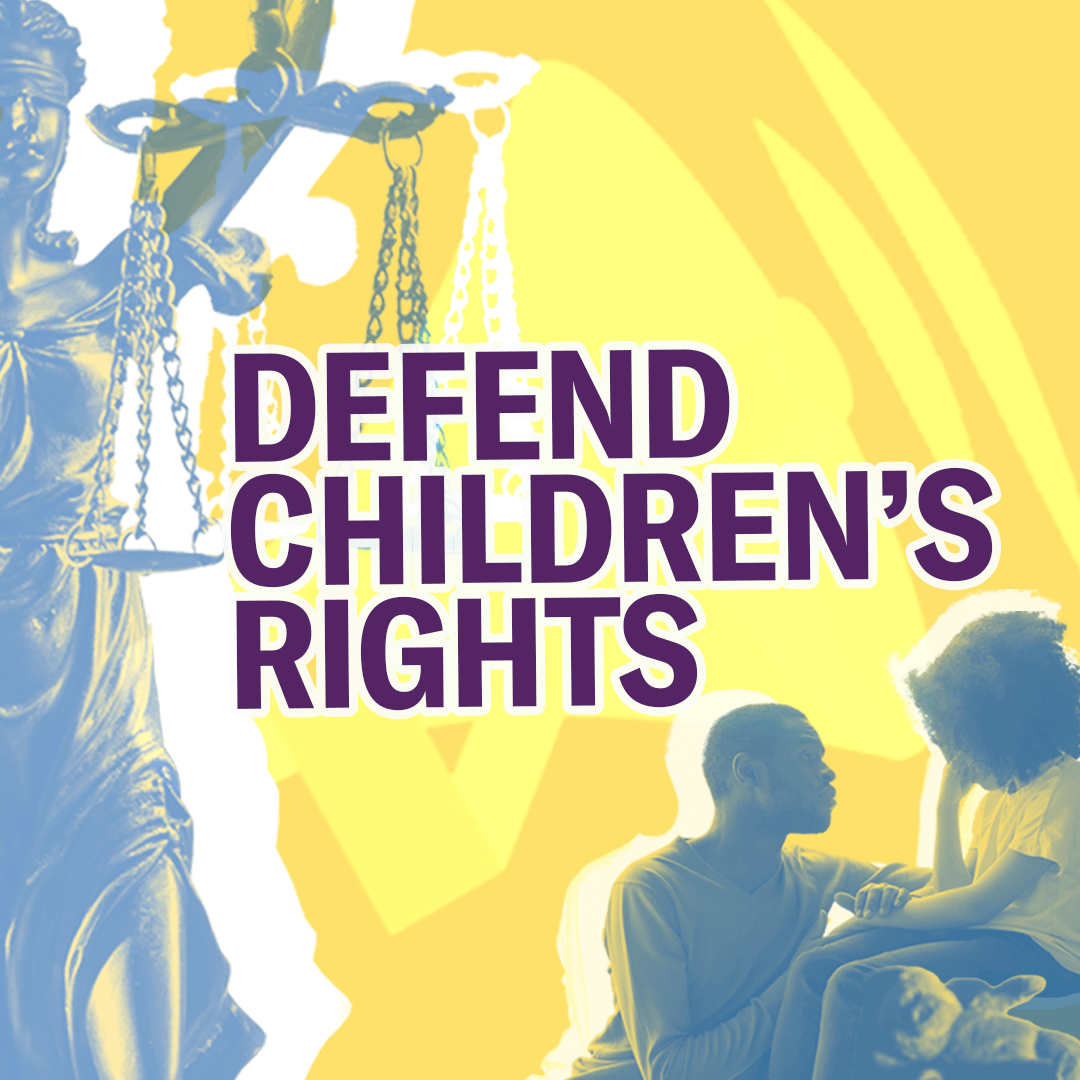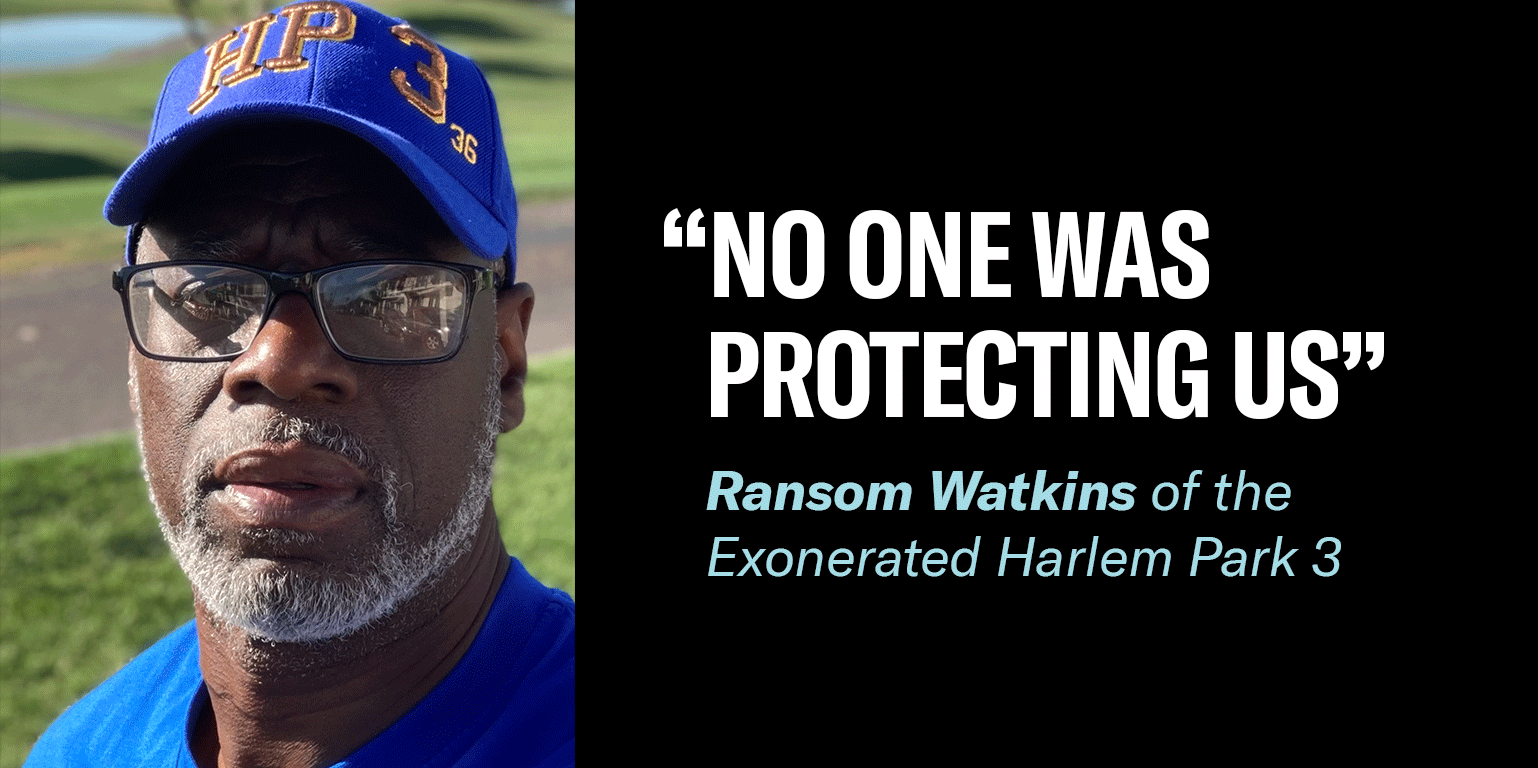Defend the Childhood Interrogation Protection and Juvenile Justice Reform Acts.
As a non-profit organization, dedicated to ensuring the civil rights of Marylanders are respected and their lives are valued, we’ve come across many problems within our legal justice system and policies.
One issue that we keep seeing is high incarceration rates. Maryland shamefully leads the nation in the highest incarceration rate of Black people. Maryland’s legal justice system for children was ranked among the worst in the country, according to Human Rights for Kids’ report in 2020.
What’s even scarier is the mountains of evidence that shows how vulnerable children are in the legal justice system:
- One study found that children are three times more likely to falsely confess than adults.
- Another study reported that 36 percent of those exonerated for crimes were convicted while they were children.
- And 86 percent of those exonerated for crimes allegedly committed before they turned 14, had falsely confessed.
These numbers are outrageous when compared to the 10 percent of those exonerated for crimes they were convicted of as adults. Data shows that children waive their rights at the shocking rate of 90 percent.
Black children are the most vulnerable in our legal justice system due to the combination of their age and the racism they experience, starting at the police encounter and continuing to court sentencing.
Childhood Interrogation Protection Act
After years of extensive research and deliberations among lawmakers, law enforcement, prosecutors, defense attorneys, youth advocates, and the community, Maryland passed the Childhood Interrogation Protection Act (CIPA) in 2022. This law was necessary because a high percentage of children do not understand their Miranda rights.
But thankfully, CIPA guarantees that a child will be able to consult an attorney who will explain their rights in an age and developmentally appropriate way.
Once a child is appropriately informed on their rights, they can choose to have an attorney present, request a private attorney, proceed with the interrogation without an attorney, or remain silent. Children, like adults, are entitled fully to understand their Miranda rights.
Law enforcement can still conduct witness interviews, speak to community members and interrogate children who have been properly informed of their rights and choose to waive them. However, officers can only question a child without prior counsel consultation when they reasonably believe there is an imminent threat to public safety – and as long as those questions are limited to reasonably necessary information to protect against the threat to public safety.
Juvenile Justice Reform Act
The Juvenile Justice Reform Act (JJRA) protects children’s rights in a similar way to CIPA. JJRA reduces the risk of children being in contact with criminal and juvenile justice systems. While law enforcement can still arrest and charge teens and children, the JJRA raised the minimum age for children to be arrested and criminally charged. For serious violent offenses, the minimum age for arrest is 10 years old and for less serious charges, the minimum age is 13 years old.
The law is designed to ensure children are provided with services to address critical life skills and pathways to success.
The JJRA also placed age and developmentally appropriate time limitations on probation and created opportunities for more restorative justice measures for children The law is designed to ensure children are provided with services to address critical life skills and pathways to success.
Before the pandemic, two-thirds of children who were incarcerated were there for misdemeanors or probation violations, according to state data. Studies show that detaining and incarcerating children leads to an increased risk of future arrests – not less – along with worse mental and physical health, and shorter life expectancy.
Ransom Watkins experienced these horrific effects after being falsely accused as a child and wrongly imprisoned for 36 years. In an interview with Nehemiah Bester, ACLU of Maryland communications strategist, Watkins tells us how deeply his incarceration hurt him, how children are vulnerable in the legal justice system, and the importance of the Child Interrogation Protection Act.
Listen to “No One Was Protecting Us”
There are rehabilitative methods that can create better outcomes for both children and public safety for all. Community based alternatives, like Jacob’s Ladder and Youth Advocate Programs (YAP), have provided evidence that their alternative programs are effective, life-changing, and promising. Jacob’s Ladder found in their annual report last year that 100 percent of children in their program promoted grade level or graduated, and 100 percent of them increased grade performance and academic motivation. YAP boasts important success rates, as well: 95 percent of their participants were not convicted of new felonies.
Investing in community-based initiatives, like Jacob’s Ladder, Just Us, Heels Off Gloves On, YAP, and We Are Us, will promote community well-being and provide more avenues for growth.
Did You Know?
Studies clearly show that children are more impulsive with their decision making and often do not understand the consequences of their actions, when compared to adults. Children’s brains are still developing, which continues through their teen years.
Relying on a strategy of incarcerating our children, instead of supporting them to overcome any mental/emotional challenges they may be facing in life, will only lead to even higher rates of police interactions and reincarceration. Poverty only exacerbates mental health or emotional difficulties that children may face. And institutionalized racism targets children who are Black, Indigenous, and People of Color (BIPOC) for simply existing. A combination of these factors is the reason we see BIPOC children as the most vulnerable in our legal justice system.
We must create systematic changes and heal our children, not just lock them away and throw away the key. Community-based interventions and other alternatives to incarceration are proven to be much more effective in reducing children’s legal entanglement and reincarceration.
Cool CIPA Fact
The Child Interrogation Protection Act established the Youth Access to Counsel hotline through the Maryland Office of the Public Defender. This is a tool that allows law enforcement to reach an attorney 24 hours a day. Children will have a lawyer readily available to tell them their Miranda rights in an age-appropriate way.
CIPA was enacted in 2022, with the goal to improve public safety for everyone. We hope that our children’s due process rights continue to be respected. The ACLU of Maryland and our community partners and activists are working to ensure that the public knows the true facts about CIPA. Let’s continue dismantling ineffective policies that unfairly target Black and Brown children.
Frank Patinella contributed to this blog and Meredith Curtis Goode and Yanet Amanuel edited it.





